1. Introduction to the Recipe
Preparing Cornish Game Hens is one of the most elegant yet surprisingly simple ways to bring restaurant-quality flavors to your home kitchen. These miniature birds offer the perfect balance of tenderness, rich flavor, and attractive presentation, making them ideal for intimate dinners, holiday spreads, or special occasions when you want something unique but not overly complicated. The beauty of this Cornish Game Hens recipe is how effortlessly it transforms basic ingredients—like fresh herbs, lemon, garlic, and onion—into a deeply aromatic and visually stunning dish that feels both rustic and refined. The small size of the hens allows the herbs and citrus to permeate the meat quickly, giving you beautifully seasoned results without lengthy marinating or complex preparation steps.
One of the most appealing aspects of cooking Cornish hens is their versatility. Whether you’re roasting them for Thanksgiving as an alternative to turkey, presenting them at a romantic dinner for two, or serving them at a festive family gathering, they never fail to impress. They pair well with countless sides—from roasted root vegetables and creamy mashed potatoes to wild rice, salads, and seasonal greens—meaning you can adapt this recipe to almost any menu or dietary preference. For readers who want to explore complementary flavors or broaden their culinary skills, there are many resources that can help, such as the guide on roasting poultry techniques from The Kitchn (thekitchn.com) or this helpful herb cooking reference from Epicurious (epicurious.com). These resources deepen your understanding of how herbs, aromatics, and roasting methods influence flavor development.
2. Basic Recipe: Ingredients and Instructions
Print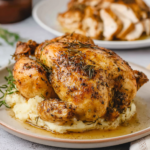
Cornish Game Hens Recipe: Juicy, Herb-Roasted Perfection
Description
Herb-roasted Cornish Game Hens recipe that’s juicy, flavorful, and simple to prepare. Perfect for gatherings and elegant dinners.
Ingredients
Dry Rub
- ½ tablespoon salt
- 1 teaspoon dried thyme
- 1 teaspoon dried rosemary
- ½ teaspoon black pepper
- ½ teaspoon garlic powder
Game Hens
- 2 Cornish game hens, thawed (1 to 1.5 pounds each)
- 2 tablespoons olive oil
- 6 sprigs fresh rosemary
- 6 sprigs fresh thyme
- 1 large yellow onion, peeled and quartered
- 2 lemons, sliced
- 4 cloves garlic, peeled
Instructions
- Preheat the Oven
Set your oven to 400°F (205°C). This temperature ensures a golden, crispy skin while keeping the inside juicy. - Prepare the Dry Rub
In a small bowl, mix salt, dried thyme, dried rosemary, black pepper, and garlic powder. Combine well and set aside. - Clean and Dry the Hens
Pat each hen dry using paper towels. This helps the skin crisp nicely during roasting. - Rub with Olive Oil
Coat each hen with olive oil, ensuring the entire surface is lightly covered. - Apply the Dry Rub
Sprinkle the dry rub evenly over the hens, rubbing it into the skin and cavity. - Stuff the Aromatics
Stuff each hen with lemon slices, garlic cloves, and sprigs of rosemary and thyme. - Arrange in Roasting Dish
Place the quartered onions in a roasting pan to create an aromatic base. Position the hens on top. - Roast the Hens
Roast for 50–60 minutes, or until the internal temperature reaches 165°F (74°C). The skin should appear golden and crisp. - Rest Before Serving
Allow the hens to rest for 10 minutes before serving so the juices redistribute.
Notes
For extra-crispy skin, pat the hens dry and chill them uncovered in the fridge for 1–2 hours before cooking.
Rotate the roasting pan halfway through cooking for even browning.
Use kitchen twine to truss the legs if you want a more uniform shape.
3. Advanced Techniques
1. Boosting Flavor with Citrus Brining
Brining is one of the most effective ways to infuse moisture and flavor into poultry, and Cornish Game Hens benefit particularly well from a citrus brine. Begin by combining water, salt, sugar, sliced lemons, oranges, and crushed garlic to create a fragrant liquid. Submerge the hens for at least four hours, preferably overnight. This technique enhances tenderness while infusing the meat with a subtle brightness. When roasted, the hens remain exceptionally juicy, even if slightly overcooked. Brining also helps the skin crisp more evenly, making it an excellent technique if you prefer a more seasoned and succulent result.
2. Herb Compound Butter Under the Skin
To intensify flavor, consider preparing a compound butter made from softened butter, minced garlic, chopped rosemary, thyme, and lemon zest. Gently lift the skin over the breast area and spread a thin layer of this mixture directly onto the meat. As the hens roast, the butter melts and bastes the meat from the inside, creating rich, complex flavor. This method works exceptionally well for those who enjoy a buttery finish and want to guarantee moist, tender breast meat without frequent basting.
3. High-Heat Roasting for Ultra-Crispy Skin
If you’re aiming for incredibly crispy skin, adjusting the oven temperature can make a significant difference. Start roasting the hens at 450°F (232°C) for the first 15 minutes, then lower the temperature to 375°F (190°C) to finish cooking. This blast of initial heat helps the skin render quickly, creating a blistered and golden appearance. The subsequent lower temperature ensures even internal cooking without drying out the meat. This technique is excellent when presentation matters and you want a striking, restaurant-quality look.
4. Aromatics Layering for Elevated Flavor Depth
Layering aromatics is a powerful way to create deeper flavor. Instead of placing all aromatics inside the cavity, divide them into three layers: beneath the hens, inside the cavity, and sprinkled over the top. This distribution allows the steam produced during roasting to carry aromatics throughout the bird. Roasting the hens on a bed of onions, garlic, and lemon slices also enhances pan drippings, which can then be used to create a luscious gravy or finishing sauce. This method works exceptionally well for cooks who want richer, more three-dimensional flavor.
5. Using a Vertical Roaster for Even Browning
A vertical roaster helps circulate heat more efficiently around the hens, producing evenly browned skin on all sides. It also allows excess fat to drip away, preventing sogginess. Simply position each hen upright on the stand, add aromatics as desired, and roast. This method is ideal for those who want perfectly crisp skin without needing to flip or rotate the birds. Additionally, it frees up space in your roasting pan for side vegetables or pan sauces.
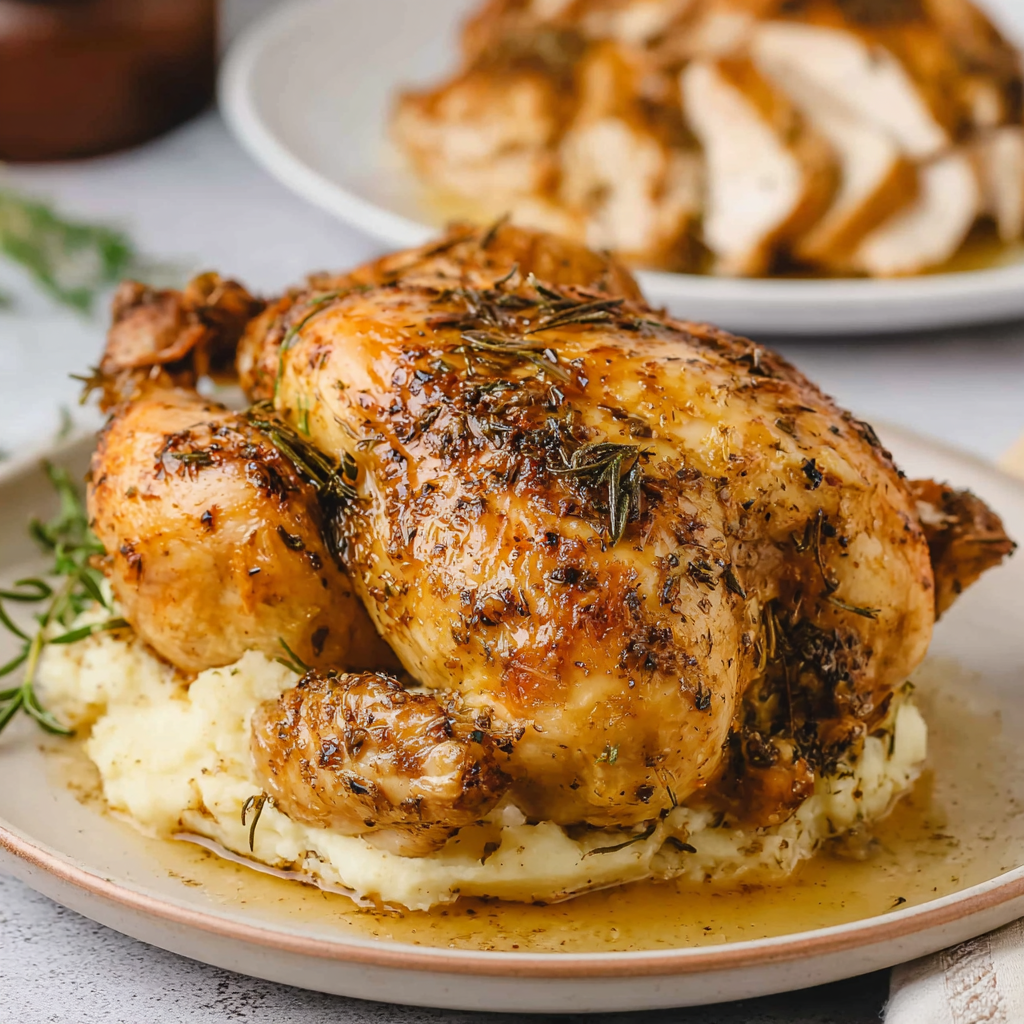
4. Storage, Shelf Life, and Maintenance Tips
1. Storing Leftovers in the Refrigerator
Once the hens have cooled completely, transfer them to airtight containers or wrap them tightly in foil. Store in the refrigerator for up to three days. Proper sealing prevents moisture loss and preserves the texture of the skin. When reheating, use the oven at 350°F (177°C) to maintain crispness. Microwaving is quicker but may soften the skin. Adding a splash of chicken broth when reheating helps maintain juiciness.
2. Freezing for Long-Term Storage
Cornish Game Hens freeze exceptionally well, making them perfect for meal prep. Portion the hens or freeze them whole after removing any stuffing. Wrap tightly in heavy-duty foil and place in freezer bags or vacuum-sealed pouches. They can be frozen for up to three months. Thaw overnight in the refrigerator before reheating. For best results, reheat at 325°F (163°C) to preserve moisture while avoiding overcooking.
3. Maintaining Texture When Reheating
To keep the texture of leftovers at their best, avoid reheating at excessively high temperatures. Instead, use moderate heat and reheat the hens uncovered so the skin can re-crisp. If the meat feels dry, tent the hens with foil during the initial reheating stage, then remove the foil to crisp the skin at the end. This technique ensures balanced reheating with moisture retention.
4. Storing Pan Drippings for Future Use
The pan drippings created during roasting are culinary gold. Store them in glass jars for up to four days in the refrigerator, or freeze them in small containers for up to two months. These drippings make incredible bases for sauces, gravies, or even soups, adding deep flavor to numerous dishes. If excess fat rises to the top, simply skim it before reheating.
5. Preventing Freezer Burn
To prevent freezer burn, ensure the hens are tightly wrapped with minimal air pockets. Double wrapping works best—first in foil, then in a sealed freezer-safe bag. Label each package with the date. If using a freezer with fluctuating temperatures, store the hens toward the back to maintain consistent cold levels and preserve quality.
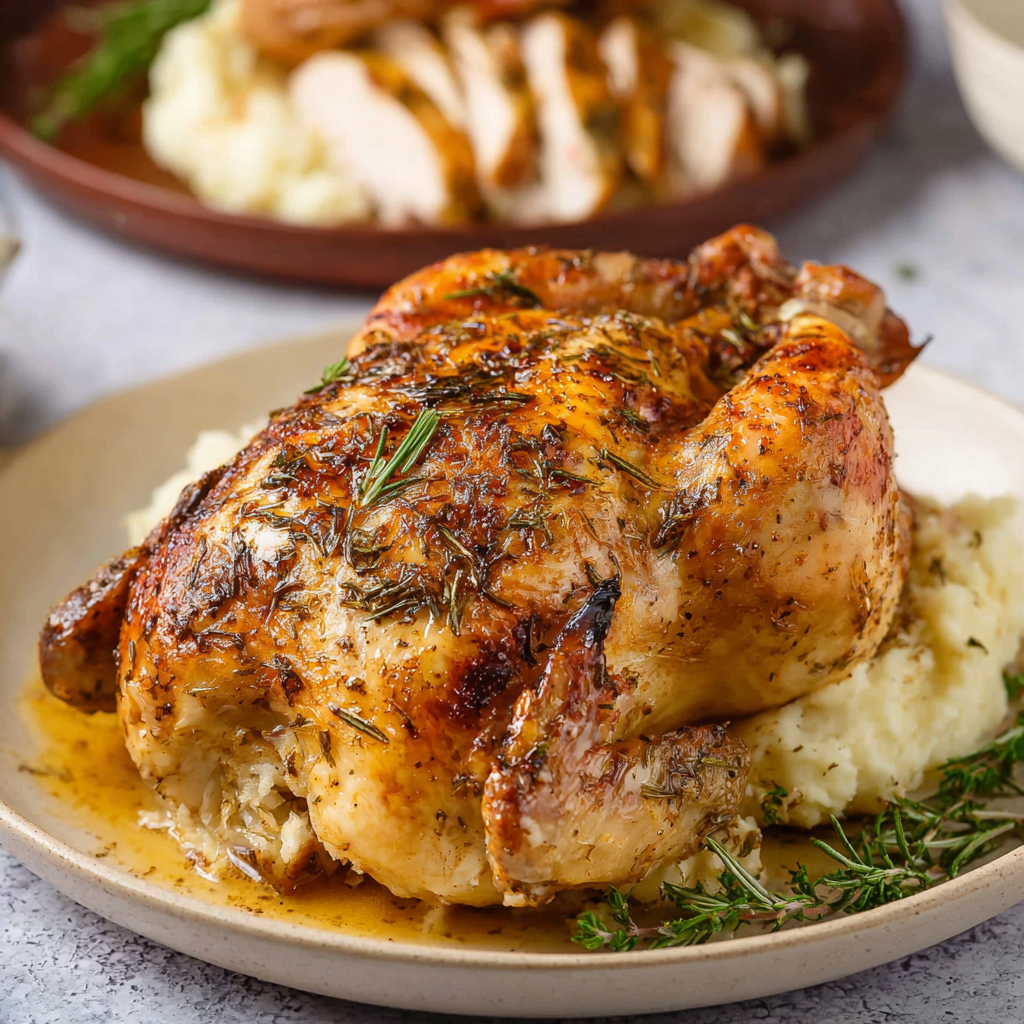
5. Dietary Adaptations and Substitutions
1. Low-Sodium Adaptation
For those following a low-sodium diet, the dry rub can be adjusted by reducing the salt to ¼ tablespoon or omitting it entirely. Replace it with salt-free herb blends or additional fresh herbs. Lemon juice and zest naturally enhance flavor, helping compensate for the reduced saltiness. Cooking with low-sodium broth also helps maintain depth in the final dish.
2. Gluten-Free Adaptation
This recipe is naturally gluten-free, making it ideal for individuals with gluten sensitivities. However, caution should be taken when adding sauces or gravies. Use gluten-free thickeners such as cornstarch or arrowroot powder instead of flour. If adding stuffing, opt for gluten-free bread cubes or rice-based stuffing alternatives.
3. Dairy-Free Adaptation
Since the base recipe contains no dairy, it’s suitable for those avoiding dairy products. If you decide to use a compound butter (as suggested in the advanced techniques), simply substitute with a high-quality dairy-free butter or olive oil. Both alternatives maintain moisture and flavor.
4. Low-Carb / Keto Adaptation
Cornish Game Hens are naturally keto-friendly. Pair the hens with low-carb sides such as roasted cauliflower, sautéed greens, or mashed cauliflower. Avoid sugary glazes and stick to herb-based rubs, lemon, and olive oil. Pan drippings can be turned into keto-friendly sauces with heavy cream or cream cheese.
5. Mediterranean Diet Adaptation
To adapt this recipe for a Mediterranean-style meal, add more olive oil, rosemary, thyme, and lemon. Serve with Mediterranean sides like roasted vegetables, chickpea salad, or couscous. This adds heart-healthy fats and enhances the herbaceous flavor profile.
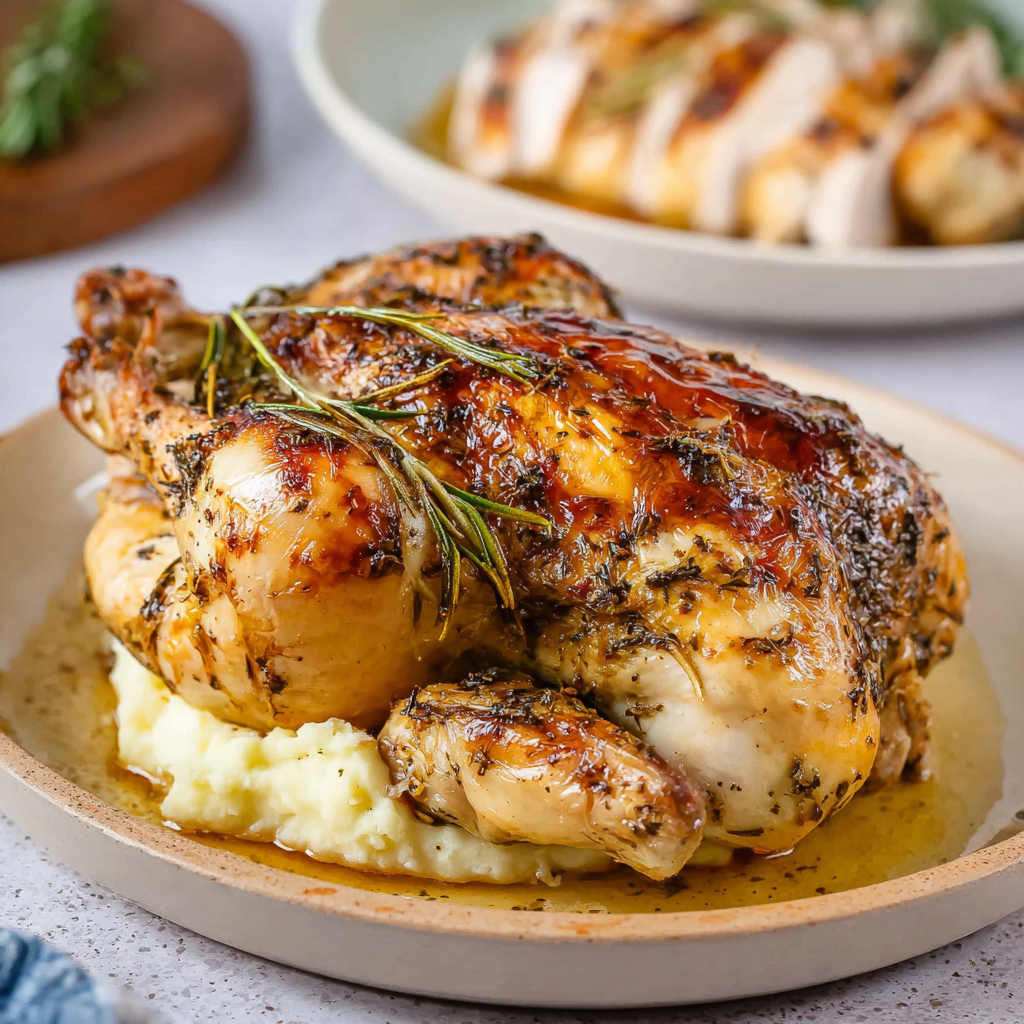
6. FAQs About the Recipe
1. How do I make sure the hens stay juicy?
Keeping Cornish hens juicy relies on proper temperature control and not overcooking. Always use a meat thermometer and remove the hens once they reach 165°F (74°C). Letting them rest for 10 minutes after roasting helps redistribute the juices. Adding aromatics inside the cavity and using compound butter or oil on the skin can also enhance moisture.
2. Can I prepare the hens ahead of time?
Yes! You can season the hens up to 24 hours in advance. Store them uncovered in the fridge to help dry out the skin, which produces better crisping during roasting. Prepare the aromatics ahead of time, but stuff the hens just before roasting for freshness.
3. Do I need to truss the hens?
Trussing is optional but recommended for a more uniform shape and even cooking. Simply tie the legs together and tuck the wings under. If you prefer a rustic presentation, you can skip this step without affecting flavor.
4. What sides pair best with Cornish hens?
Cornish hens pair beautifully with roasted vegetables, mashed potatoes, wild rice pilaf, glazed carrots, green beans, or fresh salads. Their mild flavor works with rich or light sides, making them versatile for any occasion.
5. Why are my hens not browning enough?
If your hens are not browning, check that they’re fully dried before seasoning. Increase the oven temperature for the last 10 minutes of cooking or place the hens under the broiler briefly. Avoid overcrowding the pan, which can trap steam and prevent browning.
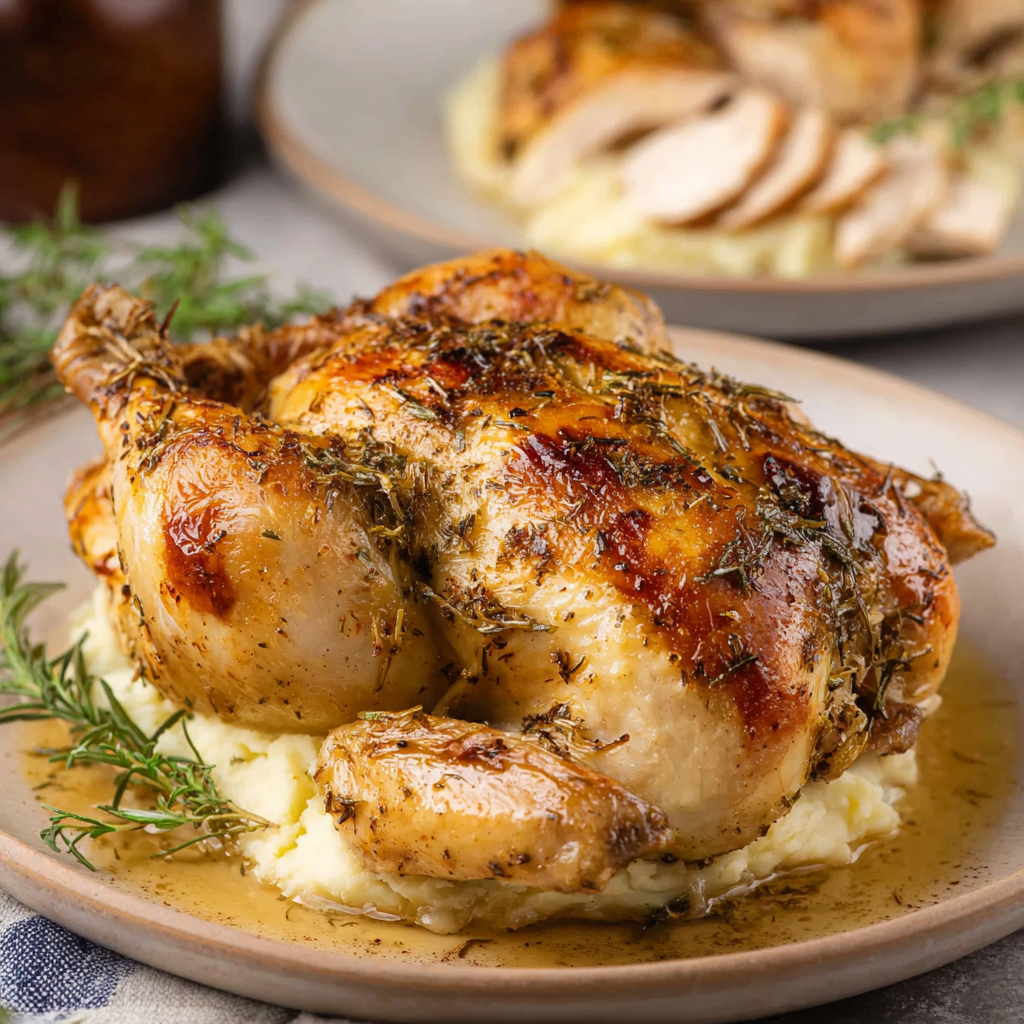
7. Conclusion & Final Thoughts
Cornish Game Hens offer an elegant, flavorful, and surprisingly simple way to elevate any meal, whether you’re hosting a holiday dinner, planning a romantic evening, or preparing a cozy weekend feast. Their small size makes them easy to handle, while their natural tenderness ensures a deliciously juicy outcome with minimal effort. With the combination of fresh herbs, aromatic lemon, and perfectly balanced seasoning, this Cornish Game Hens recipe consistently delivers restaurant-quality results that delight both new and experienced cooks.
One of the standout qualities of this recipe is its flexibility. You can keep things simple with the basic preparation or elevate your dish using advanced techniques like citrus brining, compound butter, or layered aromatics. These variations enable you to customize the hens for any flavor profile or cooking style, making them an excellent canvas for your creativity. Storage and dietary adaptations further expand their versatility, ensuring that anyone—regardless of dietary restrictions or cooking skill—can enjoy this dish.
Cornish Game Hens are also perfect for creating memorable dining experiences. Their individual serving size feels special, and their golden, crisp exterior makes for an impressive presentation. Whether served with classic sides or modern, health-conscious alternatives, they stand out as a centerpiece dish that is both comforting and indulgent.
By mastering this recipe and the techniques shared in this guide, you’ll have everything you need to prepare hens that are perfectly seasoned, beautifully roasted, and irresistibly tender every time. This is a dish that brings warmth, elegance, and unforgettable flavor to your table—making it the perfect choice for celebrations, intimate dinners, and everyday moments worth savoring.
